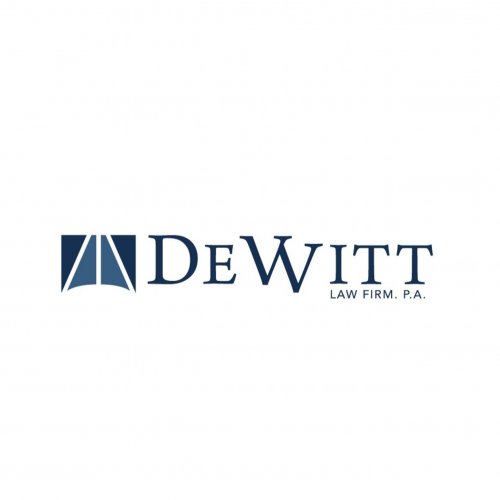Best Commercial Real Estate Lawyers in Tampa
Share your needs with us, get contacted by law firms.
Free. Takes 2 min.
Free Guide to Hiring a Real Estate Lawyer
List of the best lawyers in Tampa, United States
About Commercial Real Estate Law in Tampa, United States
Commercial real estate law in Tampa, Florida involves an extensive array of regulations and laws governing the sale, purchase, leasing, and development of commercial properties. These laws guide and protect both buyers and sellers in commercial real estate transactions, and they cover important aspects like property rights, zoning, land use, environmental issues, liens, and title examinations. Tampa has a growing commercial real estate market with unique opportunities and risks, and understanding these laws is key to successful commercial real estate transactions.
Why You May Need a Lawyer
Whether you are buying, selling, leasing, or developing commercial properties, legal complexities often arise in real estate transactions. A lawyer can help you understand your rights and obligations, draft and review contracts, perform due diligence, and resolve disputes. Professional legal help is crucial when dealing with issues such as zoning and land use regulations, environmental compliance, property taxes, liens, easements, and title defects. A Tampa real estate lawyer will be familiar with local and state laws, as well as regulations specific to Tampa's commercial real estate market.
Local Laws Overview
Commercial real estate in Tampa is governed by a mix of local, state, and federal laws. These laws cover aspects such as zoning restrictions, environmental regulations, and property tax requirements. For example, Tampa's zoning ordinances can substantially affect how a property can be used, and the city has distinct guidelines for different types of commercial properties. Additionally, Florida's state laws on purchase agreements, leases, and property disclosures can impact every business or commercial property transaction. It is imperative to be aware of these laws before entering into any commercial real estate transaction.
Frequently Asked Questions
1. Can I handle a commercial real estate transaction on my own?
While it is technically possible to handle a commercial real estate transaction without a lawyer, it is generally not advisable due to the complexities involved. A lawyer familiar with Tampa's real estate market can help protect your interests and navigate potential legal issues.
2. What is a title search and why is it important?
A title search is a thorough examination of public records to verify a property's legal ownership. It's essential to reveal any liens, easements, or other issues that could affect your property rights.
3. Do I need a lawyer if I'm leasing a commercial property?
Yes, even when leasing, it's important to have a lawyer review the lease agreement, negotiate terms on your behalf, and ensure you understand your rights and obligations under the lease.
4. What is a commercial real estate dispute?
A commercial real estate dispute can arise over contract disagreements, property boundary issues, title disputes, zoning conflicts, and more. These disputes can typically be resolved through negotiation, mediation, or legal action.
5. Can I change the zoning of a property?
In Tampa, it's possible to apply for a zoning change, but the process is complex and requires public hearings. A lawyer can help you understand the likelihood of success and the process involved.
Additional Resources
For additional resources, consider visiting the City of Tampa's official website for information on zoning regulations and property taxes. The Hillsborough County Property Appraiser's website provides comprehensive property data, and Florida's Department of Environmental Protection offers guidelines on environmental concerns. Membership organizations such as The Florida Bar's Real Property, Probate, and Trust Law section or the Commercial Real Estate Development Association (NAIOP) can also provide valuable insights.
Next Steps
If you need legal assistance in commercial real estate, start by seeking a lawyer who specializes in Tampa commercial real estate law. Research prospective lawyers online, check their reputations and reviews, and schedule initial consultations to assess their expertise and compatibility. Be prepared to discuss your goals, potential challenges, and your expectations from the lawyer.
Lawzana helps you find the best lawyers and law firms in Tampa through a curated and pre-screened list of qualified legal professionals. Our platform offers rankings and detailed profiles of attorneys and law firms, allowing you to compare based on practice areas, including Commercial Real Estate, experience, and client feedback.
Each profile includes a description of the firm's areas of practice, client reviews, team members and partners, year of establishment, spoken languages, office locations, contact information, social media presence, and any published articles or resources. Most firms on our platform speak English and are experienced in both local and international legal matters.
Get a quote from top-rated law firms in Tampa, United States — quickly, securely, and without unnecessary hassle.
Disclaimer:
The information provided on this page is for general informational purposes only and does not constitute legal advice. While we strive to ensure the accuracy and relevance of the content, legal information may change over time, and interpretations of the law can vary. You should always consult with a qualified legal professional for advice specific to your situation.
We disclaim all liability for actions taken or not taken based on the content of this page. If you believe any information is incorrect or outdated, please contact us, and we will review and update it where appropriate.










